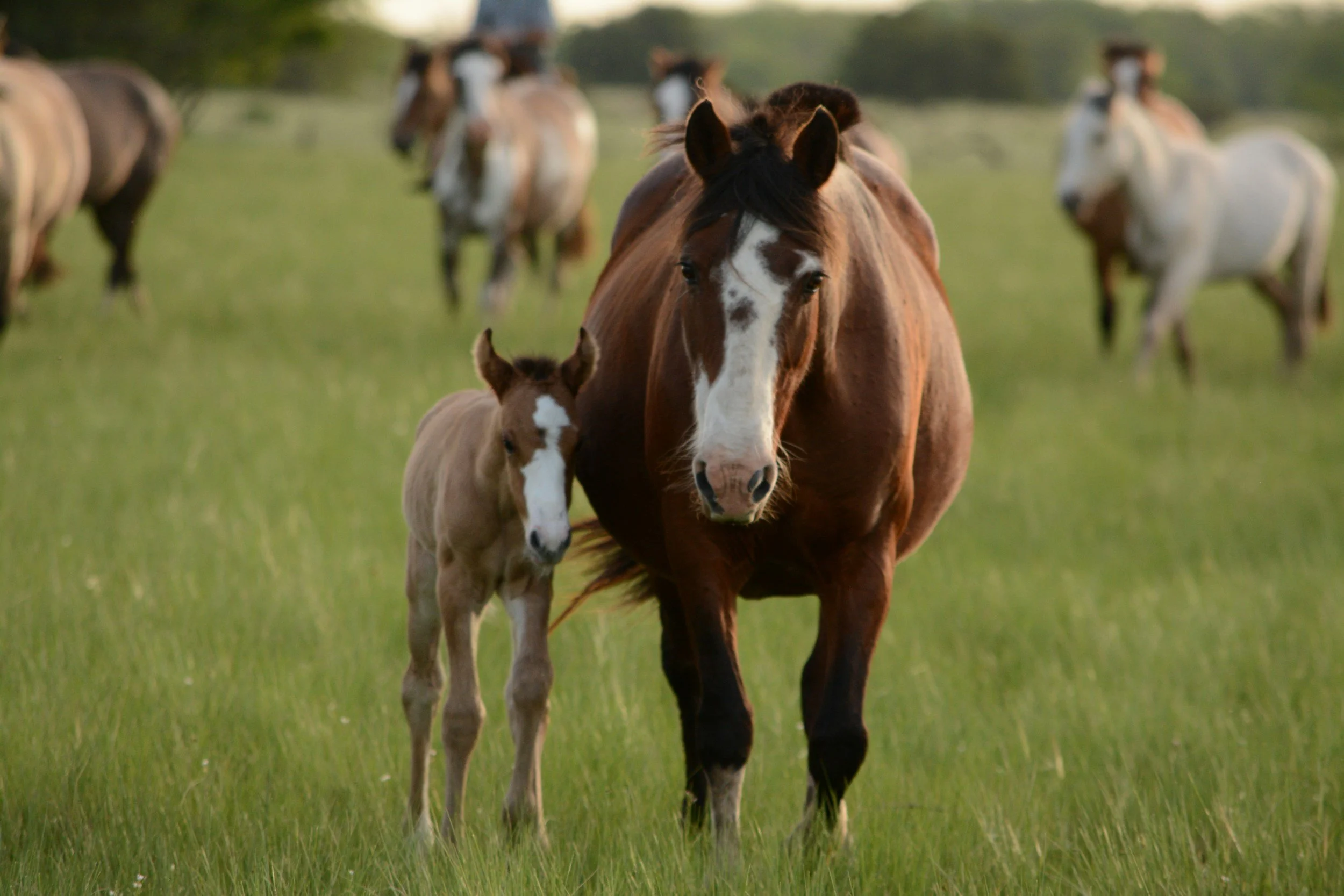Equine Nutrition.
by Dr. Jen Stewart
Cooler weather makes winter a favourite time for horses. With no flies, midges, or itchy sweating, horses can run free and soak up the winter sun!
Cool temperatures mean less stress and more time in the ‘thermoneutral zone’ (TNZ), the temperature range in which horses do not need to sweat or shiver. The TNZ varies with age, gender, breed, weather, exercise, and feed.
Typically, horses don't shiver until the temperature drops below 0°C for a weanling and –15°C for an adult horse.
Veterinary work often feels like working in a smash repair shop, constantly fixing problems after they occur. Common challenges veterinarians and owners face, such as stomach ulcers, colic, tying-up, laminitis, hoof conditions, leg and joint problems in growing horses, and performance issues, can be alleviated or even prevented with proper nutrition. Following a few simple rules can reduce many veterinary conditions and keep our horses stronger and healthier.
Gestational Diabetes in Horses
Just like humans, horses can experience pregnancy diabetes, known as Gestational Diabetes Mellitus (GDM). This condition affects 4-12% of women and has an equivalent in mares, increasing their risk of pregnancy-associated laminitis. Both humans and horses experience changes in blood glucose and insulin levels due to this condition.
Horses are naturally reactive animals, often displaying anxious or 'hot' behaviour in response to stress or unfamiliar situations. Understanding and managing these behaviours is crucial for their well-being and performance.
Grasses with oxalate levels greater than 0.5% (i.e., 5g of oxalate/kg of grass) are hazardous and can lead to calcium deficiency, osteoporosis, osteodystrophia fibrosa (ODF), nutritional secondary hyperparathyroidism (NSH), and 'bighead'.
The holiday season has arrived, and our horses deserve festive treats just as much as we do! What better way to show our equine friends love than with homemade cookies. Our three recipes are crafted by Jennie, with their health and happiness in mind, simple to prepare , and sure to get your equine friend into the Christmas spirit!
As your mare approaches her foaling date, it’s an exciting period filled with anticipation as both she and the foal grow rapidly. The last trimester, covering the 9th to 11th months of pregnancy, is crucial as the foal’s growth accelerates, gaining up to 500 grams daily and reaching 60% of its birth weight. During these final months, the foal deposits most of its bone calcium and builds liver stores of essential minerals for post-birth growth.
High-Quality Protein for Healing Damaged Hooves
Soybean meal is an excellent source of high-quality protein, which is crucial for healing damaged hooves in horses that have suffered from laminitis. Among plant-based protein supplements, soybean meal stands out for its superior protein content and high levels of lysine. For instance, soybean meal is 44% protein, compared to lupins at 35% and sugar beet at 8.6%.















When it comes to feeding horses, especially those in regular work, the conversation often revolves around grains, supplements, and performance enhancers. But what if the key to better digestion, sustained energy, and overall wellness lies in something simpler - oil?